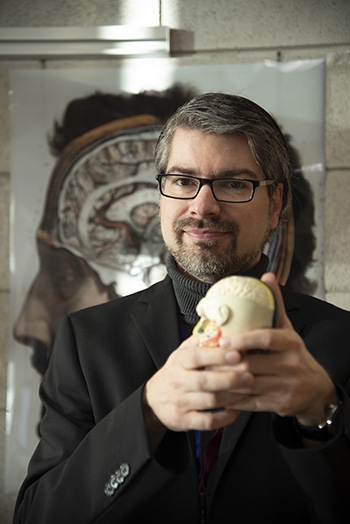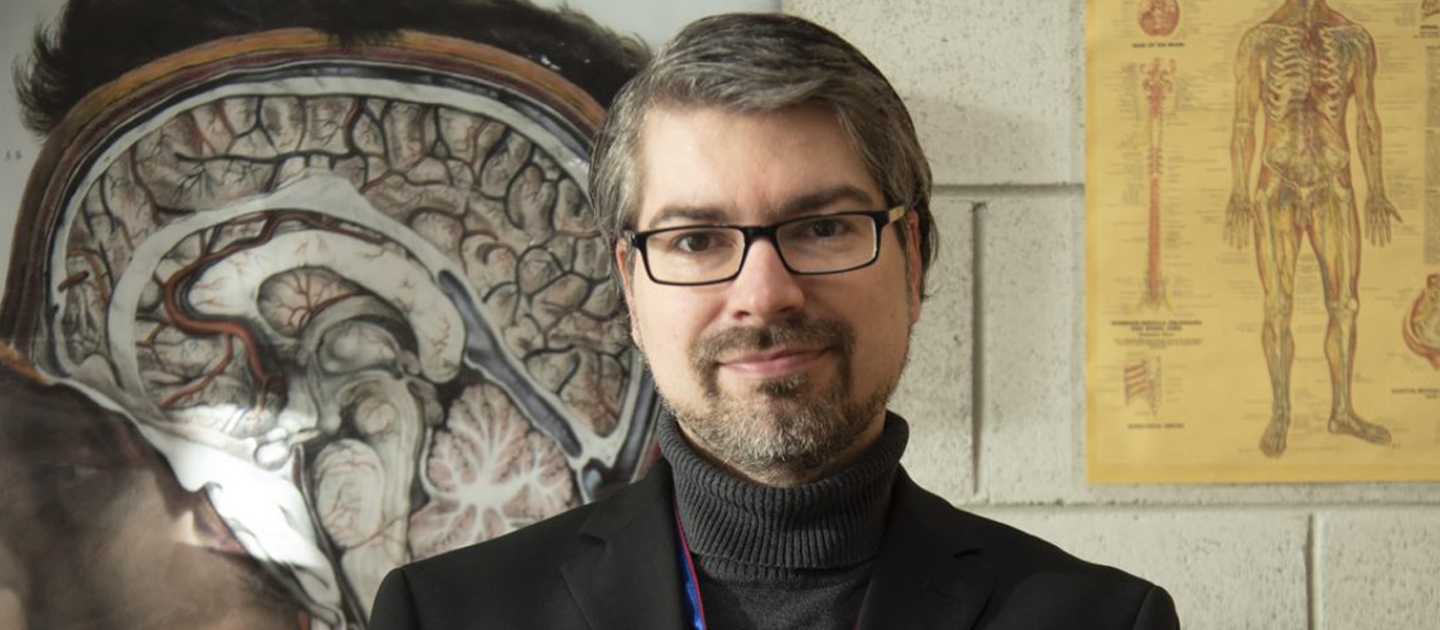The things we eat, the stressfulness of our lives, and traumatic events all have effects on our brains that we are just beginning to understand.
That is the story behind a book penned by Dr Andreas Grabrucker, a world leading neuroscientist and expert on autism at the Bernal Institute, University of Limerick.
“Eco-Neurobiology and How the Environment Shapes Our Brains”, explains how our environmental factors affect brain function and development and may be related to the occurrence of neurological diseases.
Eco-neurobiology is a field of neuroscience that investigates how environmental factors impact the brain through development and aging and Dr Grabrucker’s book was penned for the general public to help better understand this perception.
It takes the reader on a journey through the most recent findings in this field, covering how non-genetic factors influence our brain and may contribute to the development of disorders, as well as the everyday function of our minds.
Keeping your brain active activates brain regions that suffer from the onset of Alzheimer’s disease; exercise; sunlight and sleep can maintain healthy brain function. Real scientific data and references are presented with case studies on autism, brain function and brain disorders.
“I wrote the book because I never cease to be amazed by how little we know about the things we expose ourselves to in our everyday lives.
“We seem to have exponentially increasing knowledge about the genes in our body, how the genes function on cellular level, and about how mutations in genes cause brain disorders.
“However, although we understand that the environment affects us, our mood, our mental health, we know little about how exactly this works,” Dr Grabrucker said.
Dr Andreas Grabrucker’s research and teaching interests include the investigation of genetic and non-genetic factors contributing to neuronal dysfunction, the development of novel research and treatment strategies using nanotechnology in the area of translational neuroscience.
In an extract from chapter 1, Nature vs Nurture, Dr Grabrucker writes;
“In the history of science, the discussion of whether nature (our genes) determines what we do and who we are, or whether nurture (our environment, defined as “everything except that which is genetic”) is the driving force behind our behavioural characteristics has been fiercely debated. In reality, many discussions could have been avoided by merely acknowledging the fact that these two concepts are not mutually exclusive. Indeed, we have a genetic setup that sets boundaries to what we can do, who we are, how we usually react, whether we get sick often or not, whether we are tall, energetic, intelligent, and much more.
“Sometimes, these boundaries are set very narrowly, which means that the environment can push a trait only a little; at other times, the environment is a major determining force and decides whether or not the potential for something that lies in our genes is awakened.”

Dr Andreas M. Grabrucker received his MSc in Biology with a focus on Genetics from the Technical University of Munich (TUM), Germany, in 2005. After obtaining his PhD in Molecular Medicine from Ulm University, Germany, he continued his research at the Department of Psychiatry and Behavioural Sciences at Stanford University, USA. He is a tenured Lecturer at the Department of Biological Sciences of the University of Limerick, and a member of the Bernal Institute and the Health
Research Institute of the University of Limerick. His major research focus is translational neuroscience, and he has published eleven book chapters and over 53 articles in scientific journals.
- Andrew Carey
Interested in studying at UL?
